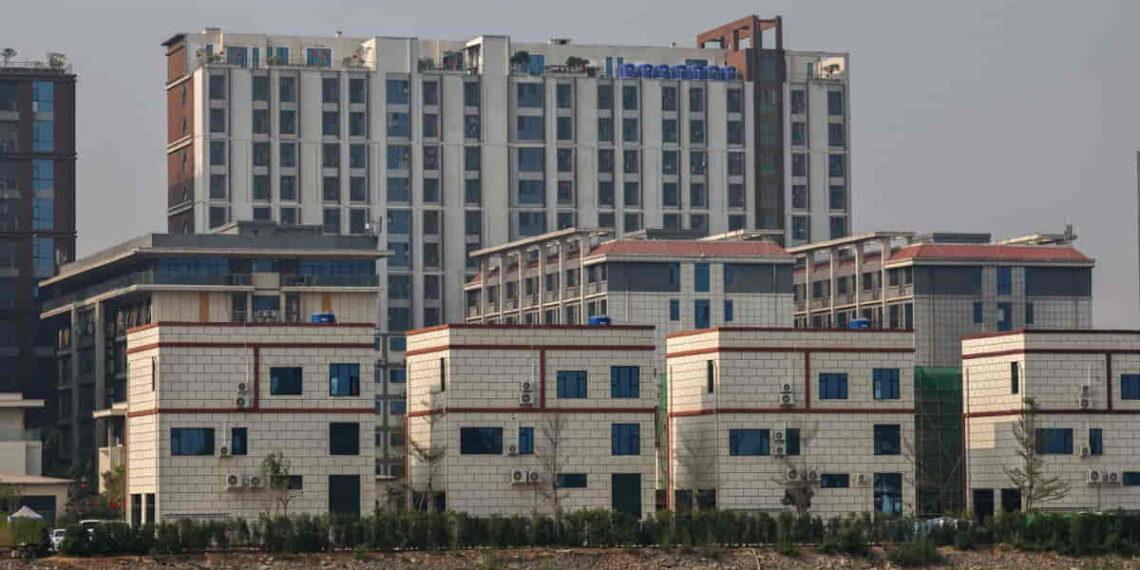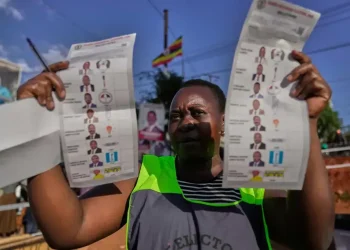Thailand Cuts Power to Myanmar Scam Centers, But Will It Stop the Swindling?
Thailand has made a bold move to disrupt the billion-dollar online scam industry operating out of Myanmar by cutting electricity to several key locations on Wednesday. The operation targets scam compounds run by Chinese crime syndicates that have flourished in Myanmar’s lawless border regions. But will it be enough to halt the widespread exploitation of workers and cybercrime operations?
Electricity Cut, But Operations Continue
As of Wednesday afternoon, at least one of the scam centers was still operational, according to a local NGO in contact with workers inside. While the Thai government has cut power to five locations near the border, it remains unclear whether the action has disrupted operations across the region. The compounds, which house thousands of workers from various countries, have become notorious for forced labor, online fraud, and other illicit activities.
The power cut, which took place in areas like Myawaddy—a town along the Thai-Myanmar border—was broadcast live on national television. Thailand’s Interior Minister, Anutin Charnvirakul, stated that the decision to cut electricity wasn’t due to contract violations but because the power was being misused for “scams, drugs, and call centers.” The move has sparked both hope and skepticism.
Scam Compounds: Small Cities of Exploitation
These so-called scam factories operate like self-contained cities, with amenities such as restaurants, grocery stores, and even daycare centers for workers’ families. But at their core, these compounds are hubs for cybercrime. Workers are lured by promises of well-paying jobs but end up being trafficked and forced to carry out online fraud schemes, often under threat of violence. Many report physical abuse and long hours with little to no pay.
In Myawaddy alone, around 6,500 victims—including approximately 4,500 Chinese nationals—are estimated to be trapped in scam compounds, according to the Civil Society Network for Victim Assistance in Human Trafficking, a Thai NGO. These individuals are held against their will and forced to participate in online scams, including identity theft, phishing, and other fraudulent activities.
A Global Scourge: Chinese Syndicates and Myanmar’s Role
Many of these scam centers are linked to Chinese crime syndicates, which have taken advantage of Myanmar’s political instability and lawlessness, especially since the military coup in 2021. The country’s ongoing civil war has further weakened governance, enabling fraud operations to flourish with the tacit support of the military junta.
While these scams have been thriving for years, Thailand has come under increasing pressure to take action. High-profile incidents, like the abduction of Chinese actor Wang Xing—who was lured to Myanmar under the pretense of a movie casting—have brought renewed attention to the issue. After being rescued from a scam compound, Wang’s return to China sparked a wave of public concern, with many families now calling on the Chinese government to free their loved ones who remain trapped in these centers.
The Limits of Power Cuts: Will They Make a Difference?
While Thailand has previously cut electricity to Myanmar’s scam centers, there are concerns that this tactic alone will not put an end to the operations. These scam factories are often equipped with diesel-run generators and can rely on alternative power sources like Elon Musk’s Starlink, which provides internet access even in remote areas.
A local resident from Thailand’s Mae Sot, a town across the river from Myawaddy, expressed doubt that the power cuts would have a lasting impact. “Tonight you will see the lights on in Shwe Kokko,” he said, referring to one of the largest and most notorious scam compounds visible across the border.
International Pressure and Cooperation
The issue has garnered international attention, with China expressing its concern over the growing scam operations near the Thai-Myanmar border. China’s Foreign Ministry recently stated it was “highly concerned” about the situation, and Chinese authorities have been actively involved in efforts to shut down scam centers in Myanmar. Over the past few years, more than 53,000 Chinese nationals—both trafficked victims and suspects—have been repatriated from scam centers in northern Myanmar.
However, many of these scam compounds have simply relocated to the southern regions of Myanmar, including Myawaddy, where they continue to exploit workers and defraud victims worldwide.
The Bigger Picture: Myanmar’s Struggles Amid War and Lawlessness
Myanmar’s ongoing civil conflict has made the country a hotspot for cybercrime. Human trafficking, money laundering, and corruption have flourished, often with the complicity of the military junta. As the fighting continues, Myanmar’s border areas, such as Myawaddy, remain a haven for these criminal operations.
In recent months, there has been renewed pressure on Thailand, China, and Myanmar to cooperate more effectively in cracking down on these illegal activities. Thailand’s Prime Minister Paetongtarn Shinawatra is currently in Beijing for talks with Chinese President Xi Jinping, signaling that stronger efforts may be on the horizon to address these transnational crimes.
A Long Road Ahead
While Thailand’s electricity cuts are a significant step, they may not be enough to halt the scam industry’s operations in Myanmar. Experts believe that a broader, more coordinated effort between governments—particularly Thailand, Myanmar, and China—will be required to dismantle these criminal networks and provide justice for the thousands of victims caught in the web of online fraud and human trafficking.
As the region grapples with these challenges, the world watches to see whether these measures will disrupt the global scam industry—or if the criminals will simply find new ways to keep the lights on and continue their illegal activities.
This article was rewritten by JournosNews.com based on verified reporting from trusted sources. The content has been independently reviewed, fact-checked, and edited for accuracy, neutrality, tone, and global readability in accordance with Google News and AdSense standards.
All opinions, quotes, or statements from contributors, experts, or sourced organizations do not necessarily reflect the views of JournosNews.com. JournosNews.com maintains full editorial independence from any external funders, sponsors, or organizations.
Stay informed with JournosNews.com — your trusted source for verified global reporting and in-depth analysis. Follow us on Google News, BlueSky, and X for real-time updates.














